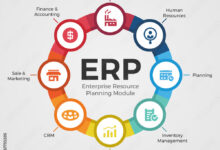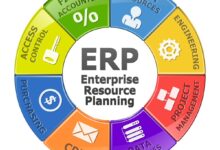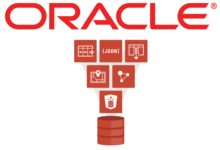ERP Project Management Services: 7 Powerful Strategies for Success
Navigating the world of ERP project management services doesn’t have to be overwhelming. With the right strategies, businesses can streamline operations, boost efficiency, and achieve seamless digital transformation.
Understanding ERP Project Management Services

Enterprise Resource Planning (ERP) project management services are specialized solutions designed to guide organizations through the complex process of implementing, upgrading, or optimizing ERP systems. These services ensure that ERP projects are delivered on time, within budget, and aligned with strategic business goals.
What Are ERP Project Management Services?
ERP project management services encompass a range of activities—from planning and resource allocation to risk assessment and stakeholder communication—focused on the successful deployment of ERP software. These services are typically offered by consulting firms, IT vendors, or internal project teams with deep expertise in ERP ecosystems.
- They involve coordinating cross-functional teams across departments like finance, HR, supply chain, and IT.
- They ensure that technical requirements align with business processes.
- They provide governance frameworks to track progress and manage change effectively.
Why ERP Projects Need Specialized Management
Unlike standard IT implementations, ERP systems integrate core business functions into a unified platform. This complexity demands structured project management to avoid cost overruns, delays, and user resistance. According to Gartner, over 50% of ERP implementations exceed their initial budget, often due to poor planning and inadequate change management.
“ERP implementations are not just IT projects—they are business transformation initiatives that require executive sponsorship and disciplined project oversight.” — Gartner Research
Key Benefits of Professional ERP Project Management Services
Leveraging professional ERP project management services can dramatically improve the outcome of your ERP initiative. These benefits go beyond technical execution—they impact organizational performance, scalability, and long-term ROI.
Improved Project Timelines and Budget Control
One of the most tangible benefits is staying on schedule and within budget. Skilled project managers use proven methodologies like Agile, Waterfall, or hybrid models to break down the implementation into manageable phases.
- They create detailed project roadmaps with milestones and deliverables.
- They monitor KPIs such as burn rate, task completion, and resource utilization.
- They proactively identify bottlenecks and adjust timelines accordingly.
Enhanced Risk Mitigation and Compliance
ERP projects carry inherent risks—data migration errors, integration failures, regulatory non-compliance, and user adoption issues. Professional ERP project management services include comprehensive risk assessment protocols.
- They conduct pre-implementation audits to identify vulnerabilities.
- They implement data validation checks during migration.
- They ensure compliance with standards like GDPR, SOX, or HIPAA, depending on the industry.
Increased User Adoption and Change Management
Even the most advanced ERP system fails if employees resist using it. Effective ERP project management services prioritize change management strategies to drive user adoption.
- They develop targeted training programs tailored to different user roles.
- They establish internal champions or super-users to advocate for the system.
- They use feedback loops to refine workflows and address pain points early.
Core Components of ERP Project Management Services
To deliver successful outcomes, ERP project management services are built on several foundational components. Each plays a critical role in ensuring the project’s alignment with business objectives and technical feasibility.
Project Planning and Scope Definition
The foundation of any ERP implementation is a well-defined project scope. This includes identifying key stakeholders, setting clear objectives, and outlining deliverables.
- Scope definition prevents ‘scope creep,’ a common cause of project failure.
- It involves documenting functional requirements and prioritizing features.
- Tools like Work Breakdown Structures (WBS) help visualize project components.
Resource Allocation and Team Structure
Successful ERP projects require the right mix of internal and external resources. ERP project management services help assemble cross-functional teams with the necessary skills.
- Typical roles include project manager, business analysts, data specialists, and IT architects.
- External consultants bring industry best practices and vendor-specific expertise.
- Clear RACI matrices (Responsible, Accountable, Consulted, Informed) define team responsibilities.
Timeline and Milestone Management
A realistic timeline is crucial for tracking progress and maintaining momentum. ERP project management services use scheduling tools like Microsoft Project or Asana to map out key phases.
- Milestones include system design approval, data migration completion, UAT (User Acceptance Testing), and go-live.
- Regular status meetings keep stakeholders informed and engaged.
- Buffer periods are included to accommodate unforeseen delays.
Choosing the Right ERP Project Management Services Provider
Selecting the right partner can make or break your ERP journey. Not all providers offer the same level of expertise, industry knowledge, or support structure.
Industry Experience and Domain Expertise
The best ERP project management services providers have deep experience in your specific industry—be it manufacturing, healthcare, retail, or logistics.
- They understand regulatory requirements and operational workflows unique to your sector.
- They can recommend configuration best practices based on real-world use cases.
- For example, a provider experienced in SAP S/4HANA for manufacturing will know how to optimize production planning modules.
Certifications and Vendor Partnerships
Look for providers with official certifications from major ERP vendors like Oracle, Microsoft Dynamics, SAP, or Infor.
- Certified partners have access to technical support, training, and early release updates.
- They undergo regular audits to maintain partnership status.
- Check if they are part of programs like Microsoft Partner Network or SAP PartnerEdge.
Client References and Case Studies
Always request case studies or client testimonials before making a decision.
- Ask for examples of similar-sized organizations or projects with comparable complexity.
- Reach out to references to verify timelines, budget adherence, and post-go-live support quality.
- Transparent providers will gladly share success stories and lessons learned.
Common Challenges in ERP Project Management Services
Despite best efforts, ERP implementations face numerous challenges. Recognizing these early allows organizations to prepare mitigation strategies.
Data Migration and Integration Issues
Moving legacy data into a new ERP system is one of the most technically challenging aspects.
- Data may be incomplete, duplicated, or stored in incompatible formats.
- Integration with third-party systems (CRM, payroll, e-commerce) requires API development or middleware.
- ERP project management services use ETL (Extract, Transform, Load) tools to ensure data integrity.
Resistance to Change and Low User Adoption
Employees often fear that new systems will complicate their work or make them obsolete.
- Transparent communication about the benefits of the ERP system is essential.
- Training should be role-based and include hands-on simulations.
- Leadership must model the desired behavior by actively using the system.
Scope Creep and Unrealistic Expectations
Stakeholders may request additional features mid-project, leading to delays and budget overruns.
- ERP project management services enforce strict change control processes.
- Every new request is evaluated for impact on timeline, cost, and resources.
- A formal change request log ensures accountability and transparency.
Best Practices for Maximizing ERP Project Management Services
To get the most value from ERP project management services, organizations must adopt a proactive and collaborative approach.
Establish Clear Goals and KPIs
Define what success looks like before the project begins.
- Common KPIs include reduction in order processing time, improvement in inventory accuracy, or decrease in month-end closing duration.
- Set SMART goals (Specific, Measurable, Achievable, Relevant, Time-bound).
- Align KPIs with broader business objectives like digital transformation or operational excellence.
Engage Executive Sponsorship
Top-level support is critical for overcoming resistance and securing resources.
- Executives should participate in key decision-making meetings.
- They should communicate the strategic importance of the ERP project to the entire organization.
- Their visibility reinforces accountability and urgency.
Leverage Agile and Iterative Approaches
Traditional waterfall methods can be too rigid for modern ERP projects. Many ERP project management services now incorporate Agile principles.
- Sprints allow teams to deliver functional modules incrementally.
- Feedback is collected early and used to refine subsequent phases.
- This reduces the risk of building a system that doesn’t meet user needs.
The Future of ERP Project Management Services
As technology evolves, so do the expectations and capabilities of ERP project management services. Emerging trends are reshaping how organizations approach ERP implementations.
AI and Automation in Project Oversight
Artificial intelligence is being integrated into project management tools to predict risks, optimize schedules, and automate routine tasks.
- AI-powered analytics can forecast delays based on historical data.
- Chatbots assist users during training and post-go-live support.
- Machine learning algorithms help clean and categorize data during migration.
Cloud-Based ERP and Remote Implementation
The shift to cloud ERP platforms like Oracle Cloud ERP or Microsoft Dynamics 365 Finance has transformed project delivery models.
- Remote implementations reduce travel costs and accelerate timelines.
- Cloud providers offer pre-configured templates and automated updates.
- ERP project management services now include cloud security, scalability planning, and subscription management.
Focus on Continuous Improvement and Post-Go-Live Support
The project doesn’t end at go-live. The most effective ERP project management services include a strong post-implementation phase.
- They conduct regular health checks to identify performance issues.
- They support continuous process optimization through Kaizen or Lean methodologies.
- They offer ongoing training and system upgrades to keep the ERP environment current.
Real-World Examples of Successful ERP Project Management Services
Learning from real-world implementations can provide valuable insights into what works—and what doesn’t.
Manufacturing Company Streamlines Operations with SAP S/4HANA
A mid-sized automotive parts manufacturer partnered with an SAP-certified ERP project management services provider to migrate from an outdated legacy system.
- The project was completed in 10 months with zero downtime.
- Inventory accuracy improved by 92%, and production planning cycles were reduced by 40%.
- The provider used a hybrid Agile-Waterfall approach, allowing for flexibility without sacrificing structure.
Retail Chain Enhances Supply Chain Visibility with Oracle Cloud ERP
A national retail chain implemented Oracle Cloud ERP to unify its financials, procurement, and inventory systems.
- ERP project management services included data cleansing, integration with e-commerce platforms, and change management workshops.
- Within six months of go-live, the company reduced stockouts by 35% and improved supplier payment accuracy.
- The project team used Oracle’s Rapid Implementation methodology to accelerate deployment.
Healthcare Provider Achieves Compliance with Dynamics 365
A regional hospital network adopted Microsoft Dynamics 365 for Finance and Operations to meet HIPAA compliance and improve patient billing processes.
- The ERP project management services provider conducted a thorough risk assessment and implemented role-based access controls.
- Staff training reduced billing errors by 60% and improved audit readiness.
- Ongoing support ensured smooth adaptation during peak operational periods.
How to Measure the ROI of ERP Project Management Services
Investing in ERP project management services is not just a cost—it’s a strategic investment. Measuring return on investment (ROI) helps justify the expenditure and guide future decisions.
Quantitative Metrics for ROI Analysis
These are measurable outcomes that directly reflect financial impact.
- Reduction in operational costs (e.g., labor hours saved, fewer manual errors).
- Increased revenue due to faster order fulfillment or improved customer service.
- Lower IT maintenance costs from consolidated systems.
Qualitative Benefits and Long-Term Value
Some benefits are harder to quantify but equally important.
- Improved decision-making through real-time reporting and dashboards.
- Greater agility in responding to market changes.
- Enhanced employee satisfaction from streamlined workflows.
Calculating Total Cost of Ownership (TCO)
To assess ROI accurately, organizations must consider the total cost of ownership, including:
- Licensing fees
- Implementation costs (consulting, training, customization)
- Ongoing support and maintenance
- Internal resource allocation
“The true ROI of ERP project management services isn’t just in cost savings—it’s in the ability to transform how a business operates.” — Forbes Technology Council
What are ERP project management services?
ERP project management services are professional solutions that guide organizations through the planning, execution, and optimization of ERP system implementations. They include project planning, risk management, change management, and post-go-live support to ensure successful deployment.
Why do ERP projects fail without proper management?
ERP projects often fail due to poor planning, lack of executive support, inadequate change management, scope creep, and data migration issues. Professional ERP project management services mitigate these risks through structured methodologies and expert oversight.
How long does an ERP implementation typically take?
Implementation timelines vary based on complexity, but most mid-sized organizations complete ERP projects in 6 to 18 months. Cloud-based ERPs with standardized templates can be deployed faster, sometimes in under 6 months with the right ERP project management services.
Can small businesses benefit from ERP project management services?
Absolutely. Even small businesses can gain significant value from ERP project management services, especially when adopting scalable cloud ERP solutions. These services help avoid costly mistakes and ensure the system supports growth and compliance.
What should I look for in an ERP project management services provider?
Look for industry experience, vendor certifications, strong client references, a proven methodology, and post-implementation support. Transparency, communication skills, and a focus on change management are also critical success factors.
ERP project management services are a cornerstone of successful digital transformation. From defining project scope to ensuring user adoption and measuring ROI, these services provide the structure and expertise needed to navigate complex implementations. By choosing the right provider, setting clear goals, and embracing best practices, organizations can unlock the full potential of their ERP investments. The future of ERP lies not just in technology, but in intelligent, people-driven project management that delivers lasting business value.
Further Reading:







